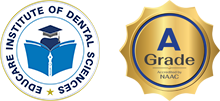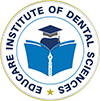Maxillofacial surgery is a specialized branch of dentistry that focuses on diagnosing, treating, and correcting conditions related to the face, jaw, and mouth. It encompasses various procedures, from dental implants and corrective jaw surgeries to the treatment of facial trauma and congenital abnormalities like cleft lip and palate.
The procedure typically begins with a detailed consultation, followed by advanced imaging techniques like X-rays or CT scans to assess the patient’s condition. Common surgeries include wisdom tooth extraction, reconstructive surgery after accidents, and facial tumor removal. Depending on the complexity, surgeons perform these procedures under local or general anesthesia.
While maxillofacial surgery can drastically improve a patient’s quality of life, complications can arise. Potential risks include infection, bleeding, nerve damage, and scarring. In rare cases, patients may experience difficulty in breathing or swallowing. Post-surgery recovery varies, but patients should follow their surgeon’s aftercare instructions to minimize risks.
Educate Institute of Dental Science, aspiring dental professionals are trained in this intricate field, ensuring they are well-prepared to perform life-changing surgeries with precision and care.

